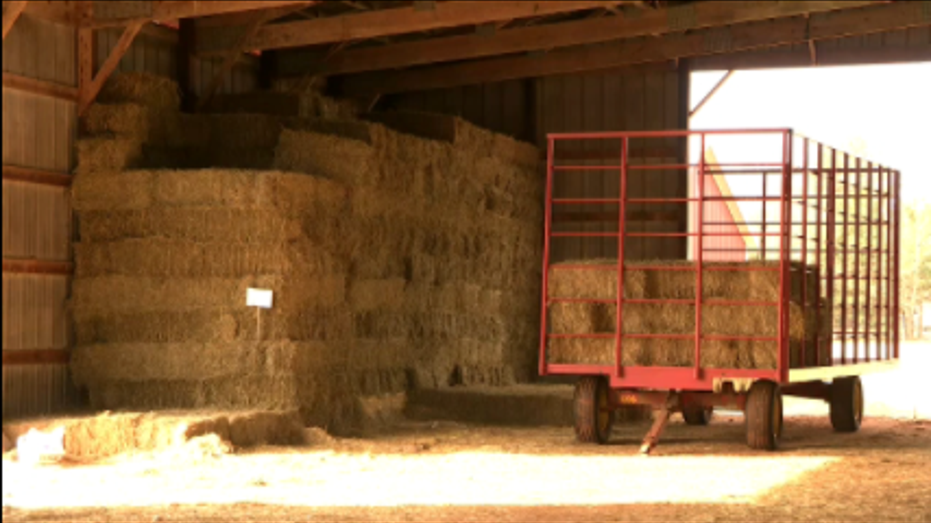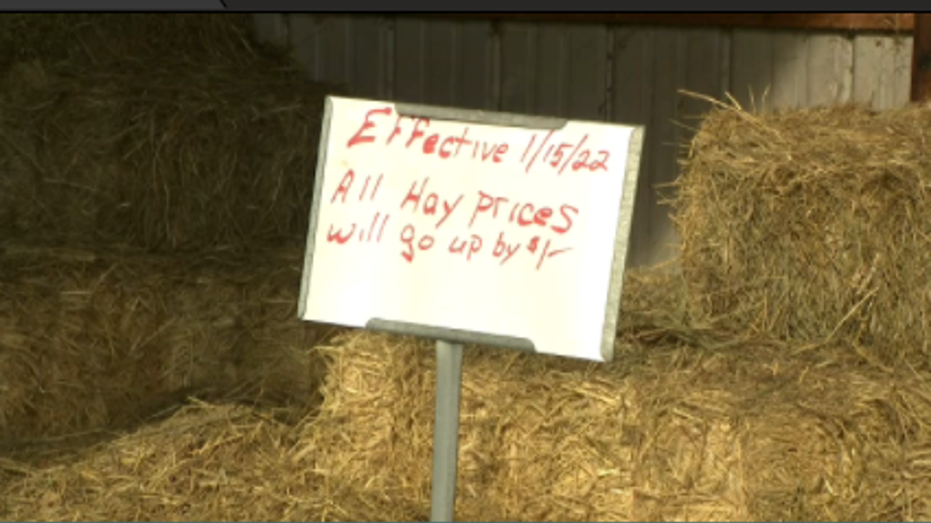Wheat prices hit 14-year high, food shortage fears rise
Russia and Ukraine account for around 29% of global wheat exports
Farmers facing massive hike in fertilizer costs amid inflation, Russia tensions
Astin Farm General Manager Tres McQuaig says market volatility and rising diesel fuel costs have also upset his business.
The war in Ukraine is raising concerns about higher food prices worldwide.
Russia and Ukraine account for around 29% of global wheat exports, 19% of global corn supplies, and 80% of the world’s sunflower oil exports. This reliance has many traders worried that any further military force could trigger a massive scramble by food importers to replace supplies normally sourced from the Black Sea region.
FOOD PANTRY STAFFERS SAY INFLATION, HIGHER PRICES BRINGING MORE PEOPLE THROUGH THEIR DOORS
Wheat futures reached record highs on Tuesday, following a 14-year high at the end of last week. Wheat prices reached a 14-year high on Friday, with Chicago futures for grain closing 41% higher than the previous week at $12.09. That jump marks the biggest gain over six decades. On Monday, the price closed up for the 6th consecutive day.
While market volatility and potential disruptions in exports in wheat and corn are driving prices, farmers are bearing costs from ongoing supply chain snarls.
"While U.S. wheat prices rose, farmers have also been experiencing a price increase for key inputs – not only related to this conflict – but from the existing stresses that have been impacting the entire supply chain for some time," CEO of the National Association of Wheat Growers, Chandler Goule, told FOX Business.
Russia is also one of the world’s biggest exporters of all three major groups of fertilizers, and officials have said it could suspend exports, leaving farmers to bear the cost of any prolonged shortage.
Prices for fertilizer are already up as much as 98% from a year ago. Two of the key fertilizer forms, including nitrogen-based Urea and the world’s most widely used phosphorus fertilizer, diammonium phosphate, are up nearly 99% and 68% year-over-year respectively, according to data from DOW Jones. Threats to supply cuts and spiking prices have some farmers concerned about hoarding.
RUSSIA-UKRAINE WAR PUSHES DOMESTIC GAS PRICES TO NEW HIGH
"We're paying more for parts," Ryck Suydam, owner of Suydam Farms told FOX Business. "We're paying more for everything so that all that stuff adds in, especially even transporting the fertilizer to get here, it costs more to get it here."
Suydam said that fertilizer prices have doubled as a result of rising costs of natural gas. Last year, Suydam paid $17,000 to fertilize his 300-acres. This year, he's fertilizing a little more than half the acreage, but paying double - $34,000.
Suydam Farms grows produce, plants and livestock, but its main source of income is hay production and field crops. Sudyam said that to stay in business, they will have to pass the costs down to the consumer.

Suydam Farms is one of the largest hay and straw producers in central New Jersey.
At the beginning of this year, Suydam raised the prices on his hay by a dollar per bale, and prices will likely increase 25 to 30% over this year to cover the increased costs.

Suydam Farms raised prices on hay by a dollar per pale at the beginning of the year.
"My fear is that we’re gonna probably lose money this year," Suydam said. "Some farmers are sitting out. They’ll say ‘never mind, I’m not going to fertilize my fields this year. I know before I even plant a crop I’m going to lose money. Why am I doing it? They’ll let the fields go fallow."
GET FOX BUSINESS ON THE GO BY CLICKING HERE
Economists warn that any cuts in supply could result in a surge in already high nutrient prices and further hike up food prices.
Prices worldwide already reached record highs in February, jumping nearly 21% from a year ago, according to the United Nations’ Food and Agriculture Organization.
Suydam said that to solve the fertilizer crunch, the U.S. needs to increase production of natural gas, which makes its byproduct, nitrogen, more affordable and readily available.
"We've got a lot of natural gas in this country," Suydam said. "Open the gates, the pipeline, you're sure to get more natural gas flowing, bring that price down and more fertilizer be available."




















